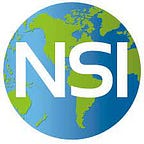Instead of Harming U.S. Technology, Let’s Harness it to Take on China
By Michael Allen, NSI Advisory Board Member
The United States is entering a pivotal moment in its strategic competition with China, marked by rare bipartisan support to harness the full-scale potential of America’s innovative power. The Senate’s 68–32 passage of the U.S. Innovation and Competition Act (USICA) showcased this commitment to strengthen America’s position at the forefront of cutting-edge research and development. A smart regulatory and legislative approach is now needed at home and abroad, and we must be careful before adopting policies that impede innovation in sectors vital to our competition with China.
A recent antitrust package drafted by the House of Representatives, however, charts a starkly different path and would directly undermine the premise of USICA. The House’s proposals set its sights on knee-capping America’s largest technology providers while affording more favorable treatment to foreign technology rivals. As the largest investors in R&D, America’s big technology companies will continue to represent a growing share of America’s future workforce, as well as enhance our ability to counter the influence of foreign subsidized technology companies. The House bills could not only hamstring some of the largest drivers of U.S. innovation, but also impede the ability of these companies to create millions of new American jobs just as the economy is gearing up for a rebound.
Congressman David Cicilline, Chairman of the House Antitrust Subcommittee, called the five bills a way to “level the playing field”. But their implementation would mainly serve to help rivals like China out-compete and out-innovate American firms. In China, the government celebrates its large technology firms as national champions and invests unprecedented amounts of money into growing its high-tech sectors, with the stated goal of attaining global supremacy in several fields of emerging technology like quantum computing and artificial intelligence. In the U.S., by contrast, the House bills would cut the legs out from under some of the main drivers of innovation, research, and development in those sectors. Put simply, the proposed legislation would present grave consequences for global U.S. competitiveness.
The House legislation places sweeping restrictions on U.S. technology firms simply because they are large in size, hampering their ability to grow, innovate, and support the U.S. economy. They would be compelled to give preferential treatment to third-party companies (even to Chinese and Russian competitors), and mandated to share data with rival companies including foreign firms. The edge that the U.S. maintains over China and other adversaries, which relies on innovation-oriented principles and the power of the free market to drive technological advances, would be sidelined.
Meanwhile, under the proposed legislative package, Chinese and Russian technology giants would remain unscathed — in fact, they would directly benefit from greater access to U.S. technology as well as the data of U.S. citizens and businesses. Companies like Baidu, Bytedance, and Alibaba would be exempt from the antitrust legislation, as their U.S. user base or their total market cap has been deemed too small. While the bills would cripple the ability of large U.S. technology firms to make acquisitions, Chinese firms would be exempt from oversight despite making up half of the top 20 technology companies globally — effectively creating an opening for Chinese technology giants to expand their global foothold. The dangers inherent in this outcome have been clear since at least 2012, when the House Permanent Select Committee on Intelligence released its findings on Huawei and ZTE, concluding that these firms posed “significant security concerns” for the United States.
The White House knows this and has expressed concerns about the European Union’s proposed Digital Markets Act (DMA), a set of reforms that, much like the House legislation, seeks to hinder America’s largest technology companies while offering Chinese rivals free rein for continued growth. The proposed EU regulations were recently criticized by the National Security Council (NSC) in a note to the EU delegation in Washington, arguing that U.S. technology companies were being targeted with overly “protectionist measures”.
There is certainly an argument that can be made for increased oversight and possible regulation of America’s big technology companies, but any regulations must be crafted in a way that allows the U.S. to maintain its competitive edge and doesn’t single out one sector. We should accept that American technology companies are part of our strategic competition with China and support the strength of U.S. innovation, not undermine it. The future of America’s global technological leadership depends on it.
Michael Allen was a special assistant to the president in President George W. Bush’s National Security Council, the former majority staff director of the House Permanent Select Committee on Intelligence, and is managing partner of Beacon Global Strategies in Washington, D.C.
